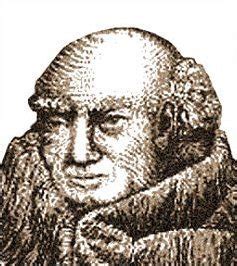A Quote by Carl Jung
Intuition does not denote something contrary to reason, but something outside of the province of reason.
Related Quotes
If you have more than one reason to do something (choose a doctor or veterinarian, hire a gardener or an employee, marry a person, go on a trip), just don’t do it. It does not mean that one reason is better than two, just that by invoking more than one reason you are trying to convince yourself to do something. Obvious decisions (robust to error) require no more than a single reason.
It is not contrary to reason to prefer the destruction of the whole world to the scratching of my finger. It is not contrary to reason for me to choose my total ruin, to prevent the least uneasiness of an Indian, or person wholly unknown to me. It is as little contrary to reason to prefer even my own acknowledged lesser good to my greater, and have a more ardent affection for the former than the latter.
I would call the attention of the reader to the difference between "reason" and "reasoning." Reason is a light, reasoning a process. Reason is a faculty, reasoning an exercise of that faculty. Reasoning proceeds from one truth to another by means of argumentation. This generally involves the whole mind in labor and complexity. But reason does not exist merely in order to engage in reasoning. The process is a means to an end. The true fulfillment of reason as a faculty is found when it can embrace the truth simply and without labor in the light of single intuition.
There are two excesses: to exclude reason, to admit nothing but reason. The supreme achievement of reason is to realise that there is a limit to reason. Reason's last step is the recognition that there are an infinite number of things which are beyond it. It is merely feeble if it does not go as far as to realise that.
Tulips come up in spring for no reason. Of course, you planted bulbs and now in April the earth warms up. But why? For no reason except gravity. Why gravity? For no reason. And why did you plant red tulip bulbs to begin with? For beauty, which is itself and has no reason. So the world is empty. Things rise and fall for no reason. And what a great opportunity that is! You can start writing again at any minute. Let go of all your failures and sit down and write something great. Or write something terrible and feel great about it.
Illness is something out of balance, rather than something within balance. It's been something that is created and it's been created for a purpose and a reason, and that purpose or reason may not be obvious to the person that has the disease. Nevertheless, there is something going on and it's not always easy to find that out.
For authority proceeds from true reason, but reason certainly does not proceed from authority. For every authority which is not upheld by true reason is seen to be weak, whereas true reason is kept firm and immutable by her own powers and does not require to be confirmed by the assent of any authority.




































